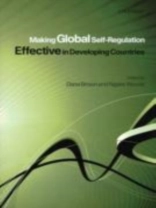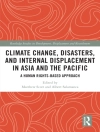As companies ‘go global’ they increasingly use factories and facilities spread across the world. But who regulates their activities in far flung corners of the world economy? In many sectors such as textiles and apparel, chemicals, and forestry, the answer is that companies regulate their own behaviour through codes and standards which they agree among themselves. The recent growth in corporate self-regulation of labour, environmental and financial practices hasattracted the attention of scholars who have detailed the number and content of self-regulatory efforts in various sectors. Missing so far, however, has been an analysis of the effectiveness and impact of self-regulation. Does self-regulation actually work and under what conditions is it most likely tobe effective? The answer to this question is particularly important for developing countries where corporate self-regulation is often seen as substitute for weak governance structures. The chapters in this volume evaluate the effectiveness of self-regulation compared to other forms of global regulation. Across sectors and states, corporate self-regulation works best when those who are regulated have a voice in deciding the content of codes and standards and when some mechanism of compliance exists at the level of the state. Unfortunately, opportunities for voice and state capacity for regulation are often lacking in developing countries. Given this, the book suggests someminimal forms of government action and participation by global actors that can make global corporate self-regulation more effective in bettering conditions in the developing world.
Dana L. Brown & Ngaire Woods
Making Global Self-Regulation Effective in Developing Countries [PDF ebook]
Making Global Self-Regulation Effective in Developing Countries [PDF ebook]
购买此电子书可免费获赠一本!
语言 英语 ● 格式 PDF ● ISBN 9780191528552 ● 编辑 Dana L. Brown & Ngaire Woods ● 出版者 OUP Oxford ● 发布时间 2007 ● 下载 6 时 ● 货币 EUR ● ID 2273108 ● 复制保护 Adobe DRM
需要具备DRM功能的电子书阅读器












